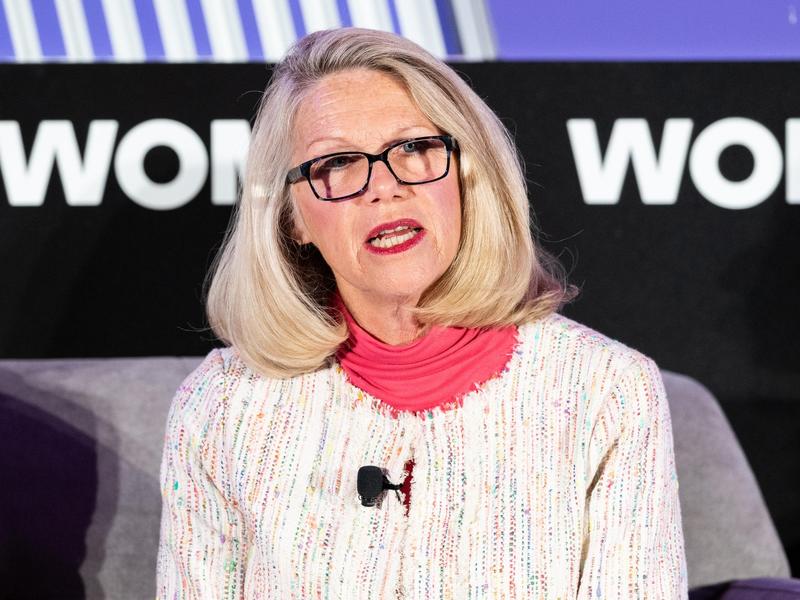
Starbuck’s CEO and potential third-party candidate Howard Schultz wants us to “talk honestly about our problems" and to “debate them with civility, respect, and optimism.”
In a New York Times opinion column this weekend, AEI President Arthur Brooks writes, “What we need is not to disagree less, but to disagree better.”
One of the easiest applause lines in politics is to attack Washington, DC and its dysfunction. If you are looking for an "amen" from those in the chattering class, make sure to write an op-ed where you make the case for "finding common sense solutions to our common problems."
But, the political challenge we face today isn’t that we simply need to be more measured in our disagreements, it’s that we disagree about the challenges and problems facing the country. It’s impossible to ‘talk honestly about our problems’ if we don’t agree on the same set of problems.
It hasn’t always been this way. “Twenty years ago, and even as recently as 2014, the top priorities of Democrats and Republicans were much more aligned than they are today,” writes the Pew Research Center. “In 1999, improving the educational system topped the list of priorities for both Republicans and Democrats, and four of the top five issues for Republicans were listed among the Democrats’ top five issues as well. Ten years later, in the wake of the financial crisis, three issues (economy, jobs and terrorism) topped the list among both Republicans and Democrats (although they ranked them slightly differently). Five years ago, the economy, the job situation and Social Security all ranked among the top five issues in both parties.”
Today, there is not one overlapping priority between the top five priorities for Democrats and those of Republicans.
Moreover, on some of these issues, the gap between how big a priority one party sees the issue and how important the other party sees that same issue is dramatic. For example, the Pew report finds, “two-thirds of Democrats and Democratic leaners identify global climate change as a top priority, while just 21% of Republicans and Republican leaners say the same.” That’s almost a 50-point gap.
“Similarly, although only 31% of Democrats say that strengthening the military should be a top priority, 65% of Republicans hold this view.”
In other words, it’s not just that many Republicans believe that the “Green New Deal” is an inadequate or incorrect solution to environmental challenges facing the country. Instead, they don't see climate change as the pressing issue Democrats think it is. Many think the issue is overblown or a 'hoax."
Similarly, there is no 'easy solution’ to the issue of building a border wall, when one side sees it as critical to protecting the safety of Americans and many on the other side view it as ‘immoral’ or a symbol of racism and xenophobia.
That’s not to say that finding political common ground is impossible. In fact, it’s pretty easy. A political leader should identify the issues for which both sides have shown common concern, and lean into those.
Pew found the smallest gaps in priorities between Democrats and Republicans on: Social Security (3 points); jobs (6 points); drug addiction (7 points) and transportation (7 points).
But, guess what, Democrats didn’t name a single one of those issues on their top five priority list. Republicans mentioned just one — Social Security.
And, so, we are back to square one. A Democratic candidate for president isn't going to generate a whole lot of enthusiasm for his/her candidacy if he/she isn’t talking about any issue in the top-five priority list. President Trump has periodically teased the idea of “infrastructure week,” but the real energy and enthusiasm among GOP voters are on issues of immigration and terrorism.
Arthur Brooks argues that it’s not disagreement that is tearing us apart. Instead, he argues that contempt for the other side is the more noxious element in our political culture. Brooks calls for all of us to ‘just say no’ to the “rhetorical dope peddlers — the powerful people on your own side who are profiting from the culture of contempt.”
But, it’s not just a culture of cable news and click-bait that is breeding this contempt. More fundamentally, when one side sees that the issues they believe are the most essential to their livelihood and success are either being ignored or denigrated by the other side, well, guess what, they are going to be angry. And, full of contempt.
Even politicians who want to turn down the rhetorical heat - like a Joe Biden or a John Hickenlooper - are going to face the same kind of challenges that more combative candidates like Bernie Sanders, Elizabeth Warren and President Trump face: the priorities they are focusing on are not the same priorities for the other side. In an interview with George Stephanopolous on Good Morning America, former Colorado Governor Hickenlooper boasted of a record of “bringing people together to get things done.” When asked how he’d do this in Washington, Hickenlooper said he’d go to Senate Majority Leader Mitch McConnell’s office and “say what’s the issue again,” and find a way to get to common ground.
Yet, as we already can see in the data, what the “issue” is for McConnell and his caucus is likely to be fundamentally different from what the “issue” is for the Democrats.
We are in a place of deep division. And, it's not just because we like disagreeing. Or, are goaded into our polarized camps by cable news and social media (though they do exacerbate it). Fundamentally, we don’t agree on the direction and priorities for this country. That means we should expect our current zero-sum politics to continue. How long this era lasts is unclear. The only thing that can change this dynamic is an existential threat to the country that almost all of us can agree upon. Sadly, that usually means something has gone very, very, wrong.









Subscribe Today
Our subscribers have first access to individual race pages for each House, Senate and Governors race, which will include race ratings (each race is rated on a seven-point scale) and a narrative analysis pertaining to that race.